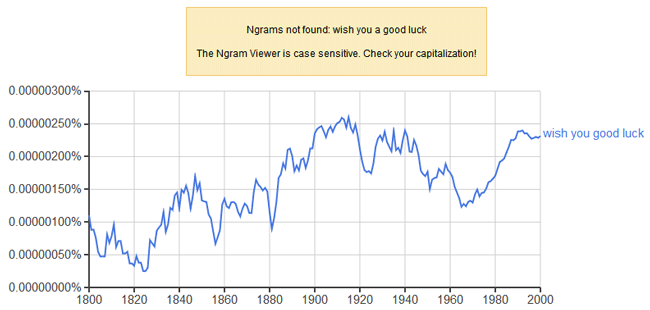Just the other day, I received a reply to the confirmation email all new subscribers to my educational mailing list receive pointing out there was an error in it!
I wished my subscribers “a good luck”, even though “luck” is an uncountable noun, which I was fully aware of by the time I wrote the template. So, how did that get in there?
It seems that wishing “a good luck” is very common on the Internet. Google Search returns the following number of results:
“wish you good luck” returns “About 306,000 results”
However, there is little correlation between the number of occurrences of a certain phrase on the Internet and good English. I checked some of the results, and it seems the vast majority of these were written by non-native speakers, even though there were a few natives who used the phrase as well.
A much better indicator of good English is how common a phrase is in English literature. In order to find out, I used the Google Ngram Viewer:

The graph tells us that “wish you good luck” is quite common, while “wish you a good luck” isn’t used by professional writers at all! The moral of the story is: You shouldn’t necessarily use a phrase yourself just because you can see it often on the Internet.
 Tip: Are you a non-native English speaker? I have just finished creating a
Tip: Are you a non-native English speaker? I have just finished creating a  Web App
Web App
